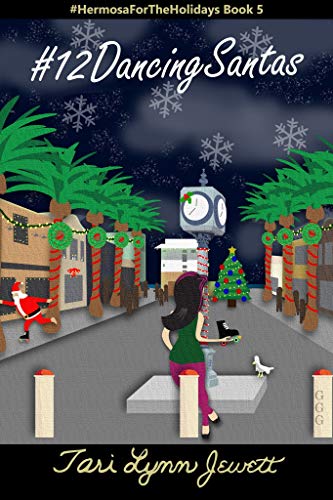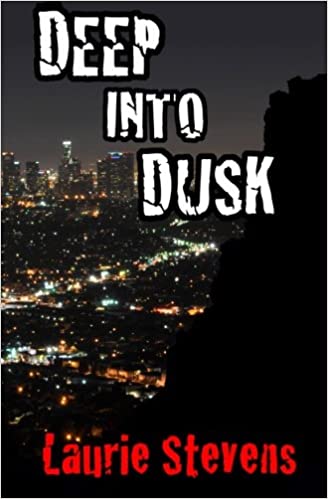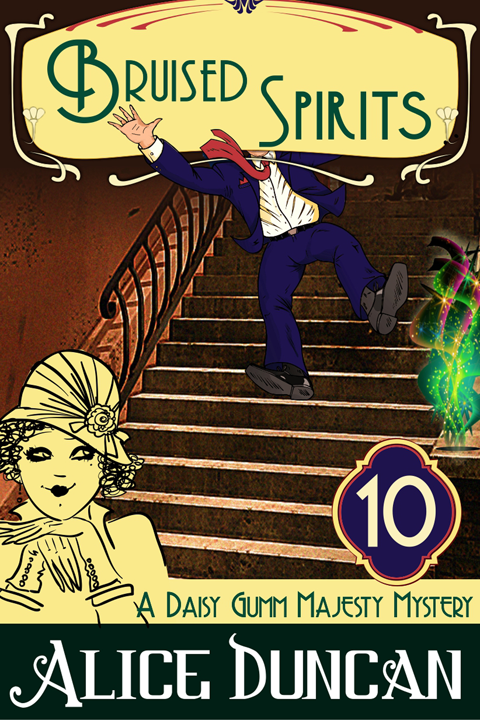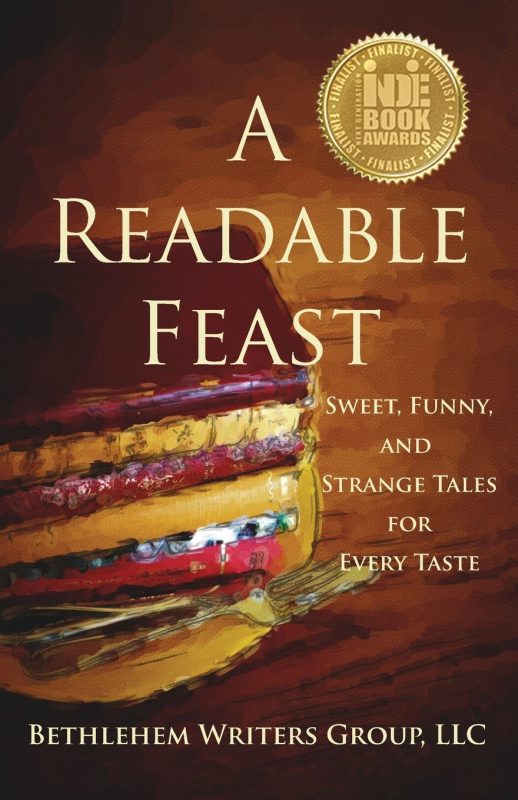Use Your Own Photos As Background Images In Your Graphics
March 12, 2023 by Denise M. Colby in category The Writing Journey by Denise Colby tagged as background images, Marketing for Authors, Social Media, Visual Content MarketingBackground images in graphics is something we don’t talk about much. Yet, when you see a social media graphic with a great quote, there most always is a graphic behind the words that helps communicate the message. So, if you plan to create your own graphics, choosing the photos you use in those graphics matter.
What to use as a background image
Nature is a popular choice, especially sunsets, sunrises, flowers, mountains or waterfalls. Images with animals are selected frequently as well, showing them all in their cute glory or in varying circumstances that can be funny or memorable. When we look at humorous posts, an image with a funny face or situation lends to the message.

The colors you use in your backgrounds is just as important. Sometimes the photo itself in the background may drive what color you use for your text in order for them to blend. But keep in mind, colors represent different things to people. Look up color choices, if interested in what emotion you want to convey in your graphics. And then choose your background image color accordingly.

I found this definition on the internet about using backgrounds in graphic design.
Backgrounds are the foundation of a successful composition. Background textures and colors create depth and contrast, allowing graphics to stand out and get noticed. Well-composed background images can help create space for you to overlay text.
Incorporating your brand in your background choices
Something to keep in mind is your brand. What is your brand? Specific colors in your brand? Do you have animals in your stories? Or what settings do you write most of your scenes? These all are ideas of what to use as background images in your graphics.
For example, if you write about cowboys, then horses and sunsets might be good options to include in your graphics. Every graphic should include your branding in some way. And think outside of the box a little bit to expand your branding content.
I found some 12 x 12 paper I liked and gave a historical look that I wanted in my background images. As I started using these to take pictures of books, bookmarks and other small items in my graphics, I liked the results.



Out of the few I first bought, I tend to use the same ones over and over because I like how the wood contrasts with all the types of images I’m creating.



If you know your brand and have a look, this is a great way to build consistency in your content. Try some things. It’s the only way to know what works and what doesn’t.
Taking your own photos and using them as background images
It’s important to note to not just find any photo off the internet. That’s actually taking someone else’s intellectual property. Instead you can find photos for free from certain apps, as well as purchase photos from several different resources.
Taking your own photos is a great way to create content. See if you can find things around you to be used as background images.

Start seeing backgrounds in the world around you
Some of this will take practice, but keeping an eye out for what you like is important. You have a brand and your brand is your style. Think about your readers, but I would focus on things that speak to you as well. A look, a vibe. All of which will come out as you build your content in your social media.
Be careful not to include anything people would be able to recognize. That’s not the point of a background image. And you don’t want something on your graphics that is someone else’s brand.
I’ve created a folder on my phone in my photos that is for background images. When I take a picture of something that I think would make a great background I save it in there so I can find it easily.
A little Disney magic in the background
One of my favorite places to find image backgrounds is Disneyland. Everything is clean and colorful and there are lots of choices available, from rock walls, boards, or the pathways. If you look around you can see things that you hadn’t noticed before, but they are part of the atmosphere. That’s what you want for your background photos. Something that blends in nicely but is clean and aestheticly pleasing.



I love going to Disneyland and taking pictures of the things around me. Disney thinks through everything, and it’s given me some great ideas for image backgrounds. Here are some additional examples:



If you zoom in close on something it can provide a completely different perspective and make the perfect background image.
I hope these examples give you some ideas for you to use in your content in the future.
Thanks for reading!
Denise M. Colby loves to write blog posts on marketing and SEO. She also loves to write about her word of the year. She creates social media graphics to highlight quotes from her word of the year. Take a look at this blog post on her 2022 word Work for additional ideas. Or the graphics created for her 2021 word Wisdom using the 12 x 12 paper mentioned above. Check out the new ones she’s created for her 2023 word Change. Or see more on her instagram or facebook pages.
0 0 Read moreLove & Romance Disney Couples Style
February 12, 2023 by Denise M. Colby in category The Writing Journey by Denise Colby tagged as Denise M. Colby, Disney, romanceI’m a Disney nerd. I love everything Disney, from the movies, the characters, to the parks. A few years ago I wrote a February post titled Dating Lessons from Wall-E. It was one of my funnest posts to write. I decided this February to try and find some other Disney couples to write about.

But first, I googled Disney Couples
Did you know there are a lot of Disney couples? I found two lists with vastly different names on them. Some had duplicates, but some did not. So I decided to create my own list. How many of these couples are you familiar with? Do you know their love story?
- Aurora & Phillip
- Snow White & the Prince
- Belle & Beast
- Wall-E and Eve
- Rapunzel & Eugene
- Anna and Kristoff
- Lady and the Tramp
- Jack Skellington and Sally
- Ella and Kit (from Cinderalla 2015)
- Meg and Hercules
- Mulan and Shang
- Ariel and Eric
Of course there are these main Disney couples
- Mickey & Minnie
- Donald & Daisy
Do you have favorites? Can you can identify which movies these couples are from? Do you know other Disney couples I need to add to my list?
Thanks for playing along with me today. If you are interested in some other Disney-related blog posts on my website, check out my Disney mugs are fun post, or my Christmas & Disney post.
0 0 Read moreMy Word for 2023 is Change
January 12, 2023 by Denise M. Colby in category The Writing Journey by Denise Colby tagged as Denise M. Colby, Word of the year, Writing GoalsMy word for 2023 is change.

Why change?
This year will be some big changes in our family. And I hope to make some changes of my own.
What type of change?
First our family changes. With our youngest in his senior year of high school, we will be done volunteering and being involved with high school activities come June. I will miss it. Supporting all the kids, cheering at choir, theater, and other events, and hanging out with other parents. Three kids and 10 years at the same school (for our 3 sons), it will be weird to say goodbye.
But with goodbye, is the opportunity to spend more time on my writing endeavors. To change my writing process, my manuscript, and my writing time. And hopefully do a little more travel and exploring with my hubby. I’m super excited about that.
Researching My 2023 Word Change
I like to explore and research my word, finding quotes and phrases that support why I chose the word I did. What I found encouraged me even more that this was the perfect word for me in 2023.
Change begins at the end of your comfort zone
Roy T. bennett
I’m at a place where I know I need to change things in my manuscript to take it to the next level. And I’m ready to do it. After a lot of work (my word in 2022), reviewing and evaluating the entire novel, I know what I need to work on. And embracing change instead of being fearful of it, is how it’s going to get done.
Here’s to a year of change!



Denise M. Colby loves to choose a new word each year and then share what she learns about it. She wrote about her 2022 word, work, in her latest blog post, and created a highlights page for her 2020 word of the year courage on her website.

Choosing a Focus Word for Next Year
December 12, 2022 by Denise M. Colby in category The Writing Journey by Denise Colby tagged as Denise M. Colby, Word of the yearI’ve written several posts about choosing a focus word each year and work hard (my word is WORK after all, this year) to find ways to study it, learn about it and share throughout the year. Over the past few years, I’ve had my word scream at me by the end of October. This year, it’s a little more subtle and I’m not sure what to choose. Have you picked your word yet?

How do you start to choose a focus word?
My word of the year journey began in 2015, when I decided to choose a focus word that I could cling to in my writing. I quickly realized that my word applied to all areas of my life, not just writing. And I have found it to be something I love to incorporate in my social media and discussions with people throughout the year.



You can introduce your word of the year in social media, take pics when you find your word, and share quotes and verses which include your focus word.
About a year ago I figured out each word builds on the previous word and a true indicator of my overall writing journey. Now I just have to figure out what my 2023 word will be.
Here are the words I’ve selected since I’ve started.
- 2015: Hope
- 2016: Believe
- 2017: Strength
- 2018: Steadfast
- 2019: Purposeful
- 2020: Courage
- 2021: Wisdom
- 2022: Work
- 2023: ???????

I have a short list for next year already, I just want to look up verses and see if there’s enough quotes to support and encourage me throughout an entire year.
Do you have a process you use to select your word? Or if you haven’t ever chosen a word, I wrote this blog post on the Wisdom of Selecting a New Focus Word Every Year
If you’ve already chosen a word, I’d love to hear what it is and why you chose it. Please write in the comments so those of us who have not picked a word yet, can find some inspiration!
In the meantime, I wish you and your families a very Merry Christmas.
Blessings,
Denise
1 0 Read moreMy Work In Progress, Applying My 2022 Focus Word
November 12, 2022 by Denise M. Colby in category The Writing Journey by Denise Colby tagged as Denise M. Colby, Word of the year, workI love the play on words with the term Work in Progress for my 2022 focus word. With my word being “work” this year, I, myself am a work in progress. Just like what us authors call our current manuscript, work in progress (WIP).
I have found this word to be a great word to focus on. The word work can mean many different things, and I have focused on the noun.
Exertion or effort directed to produce or accomplish something; productive or operative activity
My favorites have been the synonyms for the word work. These highlight what I wanted to focus on this year.

Interestingly, for my manuscript work in progress, I have been able to focus on digging deeper into editing, reviewing each chapter with my critique partners and learning through editing their work as well. I also have entered additional contests and participated in classes and online learning. With the limited time I’ve had, I feel I have continued work on my manuscript and have made progress.
My Personal Work In Progress
Personally, I am always a work in progress, but especially this year my focus has been on my health. Even with a significant car accident earlier in the year that put me in physical therapy for many months, I have made great strides in my health. I’m sleeping better, I have more energy, and I can eat a larger variety of foods again.
It has taken a daily commitment to build new habits in both of these work in progress areas. Sometimes it’s been challenging. Sometimes I wonder if I would ever get better (both in my writing and my health). But as days have become weeks, and weeks, months, I do see progress. The best complement I received recently from a dear friend; they could see how much healthier I look. And as I reflected on those words, I realized I do feel healthier and happier.
Creating Fun with my word, Work
I like to make my word each year fun and memorable and find all sorts of quotes and verses with that word in it. The last few years, I get to the end of the year and I haven’t posted as much as I wanted to about my word. That too, seems to be a work in progress. And then it becomes a mad dash to do just that. So bear with me as I share these quotes and verses related to my word work.





I hope they inspire you in your own work in progess, whether it is your writings or your personal life.
Denise M. Colby loves to write words of encouragement blog posts. She also loves to write about her word of the year she chooses each year. She created a page on her website on her 2020 word, courage, a blog post about her 2021 word, wisdom. She started 2022 sharing why she chose the word, work
0 2 Read moreAffiliate Links
A Slice of Orange is an affiliate with some of the booksellers listed on this website, including Barnes & Nobel, Books A Million, iBooks, Kobo, and Smashwords. This means A Slice of Orange may earn a small advertising fee from sales made through the links used on this website. There are reminders of these affiliate links on the pages for individual books.
Search A Slice of Orange
Find a Column
Archives
Featured Books
Harlequin Special Edition March 2021 Box Set 2 of 2
Three books in one . . .
More info →DEEP INTO DUSK
In the second pulse-pounding thriller in the series, Detective Gabriel McRay is once again forced to face his inner demons
More info →BRUISED SPIRITS
It's 1924 and Daisy Gumm bands with friends to help Lily Bannister, whose abusive husband nearly killed her.
More info →A READABLE FEAST: Sweet, Funny, and Strange Tales for Every Taste
Yearning for a tantalizing tale?
More info →Newsletter
Contributing Authors
Search A Slice of Orange
Find a Column
Archives
Authors in the Bookstore
- A. E. Decker
- A. J. Scudiere
- A.J. Sidransky
- A.M. Roark
- Abby Collette
- Alanna Lucus
- Albert Marrin
- Alice Duncan
- Alina K. Field
- Alison Green Myers
- Andi Lawrencovna
- Andrew C Raiford
- Angela Pryce
- Aviva Vaughn
- Barbara Ankrum
- Bethlehem Writers Group, LLC
- Carol L. Wright
- Celeste Barclay
- Christina Alexandra
- Christopher D. Ochs
- Claire Davon
- Claire Naden
- Courtnee Turner Hoyle
- Courtney Annicchiarico
- D. Lieber
- Daniel V. Meier Jr.
- Debra Dixon
- Debra H. Goldstein
- Debra Holland
- Dee Ann Palmer
- Denise M. Colby
- Diane Benefiel
- Diane Sismour
- Dianna Sinovic
- DT Krippene
- E.B. Dawson
- Emilie Dallaire
- Emily Brightwell
- Emily PW Murphy
- Fae Rowen
- Faith L. Justice
- Frances Amati
- Geralyn Corcillo
- Glynnis Campbell
- Greg Jolley
- H. O. Charles
- Jaclyn Roché
- Jacqueline Diamond
- Janet Lynn and Will Zeilinger
- Jaya Mehta
- Jeannine Atkins
- Jeff Baird
- Jenna Barwin
- Jenne Kern
- Jennifer D. Bokal
- Jennifer Lyon
- Jerome W. McFadden
- Jill Piscitello
- Jina Bacarr
- Jo A. Hiestand
- Jodi Bogert
- Jolina Petersheim
- Jonathan Maberry
- Joy Allyson
- Judy Duarte
- Justin Murphy
- Justine Davis
- Kat Martin
- Kidd Wadsworth
- Kitty Bucholtz
- Kristy Tate
- Larry Deibert
- Larry Hamilton
- Laura Drake
- Laurie Stevens
- Leslie Knowles
- Li-Ying Lundquist
- Linda Carroll-Bradd
- Linda Lappin
- Linda McLaughlin
- Linda O. Johnston
- Lisa Preston
- Lolo Paige
- Loran Holt
- Lynette M. Burrows
- Lyssa Kay Adams
- Madeline Ash
- Margarita Engle
- Marguerite Quantaine
- Marianne H. Donley
- Mary Castillo
- Maureen Klovers
- Megan Haskell
- Melanie Waterbury
- Melisa Rivero
- Melissa Chambers
- Melodie Winawer
- Meriam Wilhelm
- Mikel J. Wilson
- Mindy Neff
- Monica McCabe
- Nancy Brashear
- Neetu Malik
- Nikki Prince
- Once Upon Anthologies
- Paula Gail Benson
- Penny Reid
- Peter J Barbour
- Priscilla Oliveras
- R. H. Kohno
- Rachel Hailey
- Ralph Hieb
- Ramcy Diek
- Ransom Stephens
- Rebecca Forster
- Renae Wrich
- Roxy Matthews
- Ryder Hunte Clancy
- Sally Paradysz
- Sheila Colón-Bagley
- Simone de Muñoz
- Sophie Barnes
- Susan Kaye Quinn
- Susan Lynn Meyer
- Susan Squires
- T. D. Fox
- Tara C. Allred
- Tara Lain
- Tari Lynn Jewett
- Terri Osburn
- Tracy Reed
- Vera Jane Cook
- Vicki Crum
- Writing Something Romantic
Affiliate Links
A Slice of Orange is an affiliate with some of the booksellers listed on this website, including Barnes & Nobel, Books A Million, iBooks, Kobo, and Smashwords. This means A Slice of Orange may earn a small advertising fee from sales made through the links used on this website. There are reminders of these affiliate links on the pages for individual books.








































